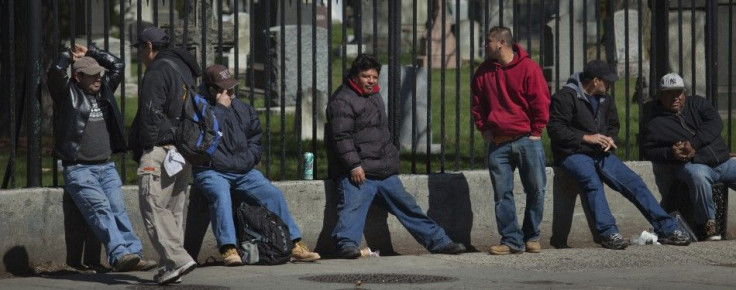Lower Small Business Optimism in March Bodes Poorly for Economy and Unemployment

Weaker earnings plus a lack of improvement in the broader economy cut optimism among small-business owners last month, the National Federation of Independent Business (NFIB) said Tuesday.
The NFIB's Small-Business Optimism Index fell in March almost two points to 92.5 as nine out of 10 index components lost ground. The only area of the index that saw any improvement was increased satisfaction with inventory stocks. The index fell after six months of slow but steady gains.
The March survey results were bad news, ending what promised to be steady, albeit glacially slow improvements in the small business sector of the economy. Nothing much happened in March to make owners more optimistic about the future and that seems to be a problem, the status quo, the report said.
Uneasiness over the financial crisis in Europe, uncertainty regarding the United States' Supreme Court's ruling on health care, weak consumer confidence and spending as well as the sluggish pace of the overall economic recovery left many business owners uncertain about the future.
Inflation also augers a bigger problem. The percent of small-business owners reporting the rising costs for inputs as a challenge facing their businesses rose to the second highest level since 2008.
Twenty-one percent of business owners plan to raise their selling prices in the coming months, and wages are at their highest level since 2008.
Inflation and uncertainty aren't the only problems cutting small business owner sentiment. The number of small business-owners reporting hard-to-fill job openings dropped two points to 15 percent, a step backwards after reaching a three-year high in January of 18 percent.
Hard-to-fill job openings are a strong predictor of the unemployment rate and indicate that the rate is likely to rise, other things equal ... it's hard to be optimistic about job growth the report said.
The number of small-business owners planning to create new jobs also declined to zero, a drop from 4 percent in February.
The number of small-business owners willing to buy equipment or improve facilities also dropped in March, falling to 52 percent after gains in January and February. The report said 22 percent of small-business owners reported poor sales as their primary concern.
Meanwhile, 43 percent of small-business owners reported their profits fell, an increase of 4 percent from February. Consequentially, positive earnings trends also lost ground, dropping 4 percent in March. A drop in profits hits small businesses particularly hard because it is the primary source of growth for small-businesses that can't sell stock.
With an outlook like this, fewer owners will bet their hard earned capital on the future, the report said.
Thirty-eight percent of small business owners reported that overall economic conditions in March meant it wasn't a good time to expand, compared to 4 percent thought it was a good time.
A bright spot? Financing wasn't a major concern for small-business owners, and only 3 percent said it was their top business concern. Ninety-two percent of small business owners reported they had sufficient access to credit, while 52 percent said they didn't want to take out a loan. Of those who did seek loans, however, 3 percent said it was harder to get credit in March.
What looked like the start of a recovery in profits fizzled out. The mood of owners is subdued -- they just can't seem to shake off the uncertainties out there ..., said Bill Dunkelberg, the NFIB's top economist. What we saw in March is painfully familiar -- this was the same pattern of growth followed by months of decline from 2011. History appears to be repeating itself, and not in a good way.
© Copyright IBTimes 2025. All rights reserved.





















